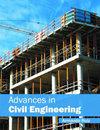A Comparative Study of Seismic Performance Evaluation of Reinforced Concrete Frame Structures Using Chinese and African Seismic Codes
IF 1.6
4区 工程技术
Q3 CONSTRUCTION & BUILDING TECHNOLOGY
引用次数: 0
Abstract
The evaluation of various earthquake codes, it is one of the significant challenges in the study area of earthquake engineering. However, according to the literature review, most research works have not addressed comparing Chinese and African seismic codes. Therefore, the purpose of this study is to identify each code’s advantages by comparing assessment of the seismic efficacy of moment resistance frame reinforced concrete (MRF-RC) frames using four different codes: the Ethiopian Building Code Standard (EBCS-8), the Egyptian Code for Design and Construction of Reinforced Concrete Structures (ECP-201), the Algerian Seismic Regulations (RPA-99), and the Chinese Code for Seismic Design of Buildings (GB-50011), the first three are the major codes used in Africa. The seismic provisions of these codes are compared and evaluated using nonlinear time-history analysis (NL-THA) and nonlinear static pushover to validate the results. These analyses are performed on four MRF-RC frame models with different heights. The results include various parameters that reflect the seismic performance of the structures. The study revealed that the Chinese code is more conservative and overestimates seismic performance compared with African codes. However, the Chinese code can be applied in African projects considering the African soil classifications, and seismic weight are adjusted to meet the African design criteria.使用中国和非洲抗震规范对钢筋混凝土框架结构进行抗震性能评估的比较研究
对各种地震规范进行评估,是地震工程研究领域的重大挑战之一。然而,根据文献综述,大多数研究工作都没有涉及中国和非洲抗震规范的比较。因此,本研究的目的是通过比较以下四种不同规范对钢筋混凝土抗弯框架(MRF-RC)抗震效果的评估,找出每种规范的优势:埃塞俄比亚建筑规范标准(EBCS-8)、埃及钢筋混凝土结构设计与施工规范(ECP-201)、阿尔及利亚抗震规范(RPA-99)和中国建筑抗震设计规范(GB-50011),其中前三种是非洲使用的主要规范。我们使用非线性时程分析(NL-THA)和非线性静力推移分析对这些规范的抗震规定进行了比较和评估,以验证结果。这些分析是在四个不同高度的 MRF-RC 框架模型上进行的。结果包括反映结构抗震性能的各种参数。研究表明,与非洲规范相比,中国规范更为保守,高估了抗震性能。不过,考虑到非洲的土壤分类,中国规范可以应用于非洲项目,并且抗震权重经过调整以满足非洲的设计标准。
本文章由计算机程序翻译,如有差异,请以英文原文为准。
求助全文
约1分钟内获得全文
求助全文
来源期刊

Advances in Civil Engineering
Engineering-Civil and Structural Engineering
CiteScore
4.00
自引率
5.60%
发文量
612
审稿时长
15 weeks
期刊介绍:
Advances in Civil Engineering publishes papers in all areas of civil engineering. The journal welcomes submissions across a range of disciplines, and publishes both theoretical and practical studies. Contributions from academia and from industry are equally encouraged.
Subject areas include (but are by no means limited to):
-Structural mechanics and engineering-
Structural design and construction management-
Structural analysis and computational mechanics-
Construction technology and implementation-
Construction materials design and engineering-
Highway and transport engineering-
Bridge and tunnel engineering-
Municipal and urban engineering-
Coastal, harbour and offshore engineering--
Geotechnical and earthquake engineering
Engineering for water, waste, energy, and environmental applications-
Hydraulic engineering and fluid mechanics-
Surveying, monitoring, and control systems in construction-
Health and safety in a civil engineering setting.
Advances in Civil Engineering also publishes focused review articles that examine the state of the art, identify emerging trends, and suggest future directions for developing fields.
 求助内容:
求助内容: 应助结果提醒方式:
应助结果提醒方式:


